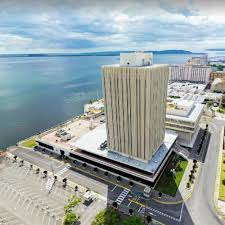The Bank of Jamaica (BOJ), today, announced an increase in the policy interest rate by 50 basis points (bps) to 7 per cent. The current decision has resulted in a cumulative increase in the policy rate since October 2021 of 650 bps
It said that after 12 months into its tightening cycle, it would also pause further policy rate increases and watch the pass-through effects on deposit and loan rates.
“This pause is also conditional on the Monetary Policy Committee (MPC) seeing more pass-through of international commodity price reductions to domestic prices and on the Federal Reserve Board (Fed) not exceeding their targeted rate increase for 2022 and 2023,” the central bank said in its media release.
Responding to questions during the bank’s Quarterly Monetary Policy Press Conference on how long the BOJ will pause the policy rate increases, Governor Richard Byles further explained that the duration would depend on the data.
“It depends on what the data shows us. We meet again in February and we look at the data in December. So, we will watch at both meetings, what the data says,” he said noting key indicators will be monitored prior to making another decision.
Jamaica’s inflation rate for October stood at 9.9 per cent, higher than the outturn for September when it was 9.3 per cent.
For Governor Byles: “Monetary policy actions to halt inflation cannot be painless to all parties.”
He however reaffirmed the central bank’s commitment to doing all that it can to control inflation noting that “…the greatest pain of all is the impact of inflation on the ability of the working population to afford the basic necessaries of food, transportation and housing.”
In the meantime, the BOJ will continue to closely monitor global and economic data “with an expectation that we will see more effects of our policies in the coming months,” the BOJ governor said.
“While the key external drivers of headline inflation, such as grains and shipping prices, continued to trend downwards, the bank has not yet seen the full pass-through to domestic food prices,” the BOJ said.
The BOJ stated further that: “Core inflation (which excludes food and fuel prices) increased marginally to nine per cent at October 2022 from 8.9 per cent at September 2022.
There is some risk that core inflation will remain high for a protracted period of inflation expectations, second-round effects from the commodity price shocks and labour market pressures do not moderate.”
The central bank also outlined that with the fast pace of monetary tightening among Jamaica’s main trading partners, the Fed’s increased interest rate target of 75 bps in November and its signalling of further rate increases, capital outflows from Jamaica and a faster pace of exchange rate depreciation could result if domestic monetary policy is not aligned correctly.
The decision to increase the policy interest rate to seven per cent was therefore made “to further mitigate these risks and to facilitate a return of inflation to the target range in the shortest possible time…”
The MPC will also continue to contain Jamaican dollar liquidity expansion and maintain relative stability in the foreign exchange market, the central bank said.
“Since October 2021, while maintaining a flexible exchange rate, the bank has taken strong actions in the foreign exchange market, including selling foreign exchange when necessary. Without these actions, imported inflation and hence the final prices faced by consumers would have been higher,” the BOJ said.
It said, overall, the policy signals are expected to cause interest rates on deposits and loans to rise further but that this will “make savings in Jamaican dollars more attractive relative to foreign currency assets and borrowing in Jamaican dollars more expensive.”

